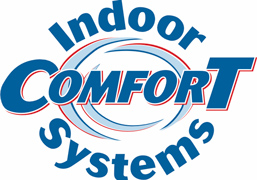Purchasing your first home is an exhilarating experience. You’re probably trying to keep track of a dozen things or more to ensure you’re making the right choice. We believe that gaining insight into your potential new HVAC system is essential. The property’s HVAC system represents a significant investment and source of potential long-term costs, so being thorough should be a top priority for first-time homebuyers.
In this guide, we’ll share seven tips for learning everything you can about a home’s heating and cooling system. And if you want a deeper opinion from the experts, don’t hesitate to contact Indoor Comfort Systems HVAC. Our experienced team can help you compare your options with industry insights that are second to none.
1. Which Kind of HVAC System Does the Home Use?
Start by determining what kind of HVAC system the home includes. Furnaces tend to last longer compared to air conditioners, and newer types of HVAC equipment like heat pumps feature average life spans that are even longer. Getting the details on the make and specific model provides a much better sense of how much it might cost in upkeep over time.
2. How Long Ago Was the System Installed?
It also helps to learn how old the HVAC system is when you’re looking at a potential new home. In general, HVAC systems last about 10-12 years. Knowing when it was installed helps you prepare for any needed servicing or when it might shut down for good. Older systems are more prone to problems, so budgeting for a replacement unit might be needed faster than expected.
3. Does the System Have a Warranty?
Check if the HVAC system is still under warranty. If it is, this can lower maintenance expenses. HVAC warranties often cover parts and labor, but it’s important to note that details will vary. Don’t forget to look into any terms that aren’t familiar to make sure you fully understand your coverage and any possible out-of-pocket costs.
4. Has the System Ever Been Professionally Serviced or Maintained?
Take a close look at the maintenance history of the HVAC system, if the records are accessible. This kind of information can reveal if the repair needs are high or how often maintenance is performed. Inquire about key tasks like filter changes, which means it enjoyed more regularly scheduled tune-ups.
5. What Are the Energy Efficiency Ratings?
Purchasing a home with a heating and cooling system with strong energy efficiency can lead to smaller utility bills and a smaller environmental impact. Check out the seasonal energy efficiency ratio (SEER) ratings for air conditioning and the annual fuel utilization efficiency (AFUE) for furnaces. Higher SEER ratings mean better cooling across the entire season, while high AFUE ratings mean the fuel is efficiently converted into useable heat.
6. Did You See Any Problems After Your Own Inspection?
Even if you don’t have the know-how of an HVAC technician, you can still take a moment to check out the HVAC system yourself. Look for any concerning items that weren’t mentioned by the seller or real estate agent. This includes strange noises, stubborn patches of the house that are too hot or cold and attempts at concealing any obvious damage.
7. Have You Asked Your Local HVAC Professional?
If you’re not quite sure about the condition of the HVAC system, it’s wise to get an assessment and recommendation from trained HVAC technicians. They can spot things you might not, including leaking coolant, bad electrical connections or inefficient ductwork.
A Consultation with Indoor Comfort Systems HVAC Helps Take the Stress Out of Your Home-Buying Journey
Selecting your first home ought to be exciting, and Indoor Comfort Systems HVAC will do everything possible to ensure yours is too. Get in touch with us at 215-741-5505. We can discuss how our HVAC services give you peace of mind, giving you what you need to step into your new home with confidence.
